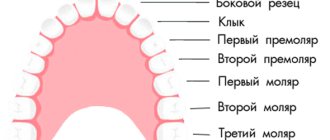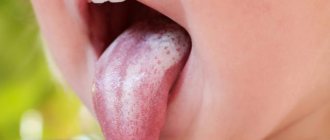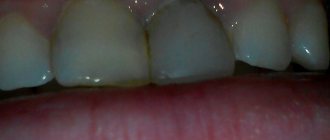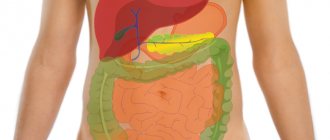Excess iodine
It happens that this substance accumulates in the child’s body, which is why the breath smells accordingly. This usually happens after a holiday at a seaside resort, taking an iodine-containing drug, or if the thyroid gland is not functioning well. Sometimes infants are infected by Klebsiella, a type of bacteria that lives on fruit. It negatively affects the functioning of the stomach and intestines.
Gall
It happens that the outflow of this substance is disrupted, then it is necessary to carry out diagnostics using ultrasound radiation and submit the biomaterial for analysis.
The smell of iron
The appearance of such an aroma indicates that iron deficiency anemia is beginning. In this situation, it is necessary to check the level of hemoglobin in the blood. Afterwards, the baby will be prescribed a vitamin complex to replenish the substance to the daily requirement. The same symptom can be noticed when gastritis, dysbiosis develops, stomach acidity increases, or other problems with the gastrointestinal tract arise.
Urine smell
In fact, this is how ammonia vapors are felt, which signal the development of kidney pathologies or diabetes. This happens due to low insulin levels and impaired carbohydrate absorption.
Why does a child's mouth smell bad?
A stench similar to feces is a very rare phenomenon and is most often inherited. Various metabolic disorders or acute intestinal dysbiosis can be passed on from relatives. Then consultation with an endocrinologist and gastroenterologist is necessary.
Rotten egg smell
In this case, you may also notice the appearance of a white coating on the surface of the tongue. This is a clear signal that gastritis, a stomach ulcer, liver disease or a violation of bile outflow are developing.
Yeast aroma
Such breathing usually indicates the presence of a fungus, but if it is felt from the mouth, then the problem most likely lies in a sore stomach. It’s better to talk about this with your pediatrician first, and he will refer you to a specialist.
Bad breath in a child
Bad breath from a baby can occur for a variety of reasons, from stress to diseases of the digestive system. Most often, halitosis in children occurs due to untimely brushing of teeth, excessive dryness in the mouth and nose; it goes away after cleansing and moisturizing. If your child constantly has bad breath, you should immediately consult a doctor. Osostomia (as doctors call halitosis) may be the first sign of a serious illness; parents should not take this symptom lightly. It is advisable to consult a dentist to check the condition of the baby’s teeth and gums. If the unpleasant symptom does not disappear, consult a pediatrician, do a general blood test, and depending on its results, consult a specialist.
What to do?
If a child has persistent bad breath, he or she should be shown to a doctor for a comprehensive examination. Usually, when you establish a drinking regime and exclude sweet foods from your diet, the unpleasant odor disappears. Parents should be alarmed by the unpleasant odor emanating from the baby’s mouth, which should be immediately examined by a doctor.
Specific pungent odor
Parents should be alarmed by the specific smell from the baby’s mouth, which does not go away after hygiene procedures. Limit your baby's consumption of sweets and heavy protein foods, and ensure he drinks plenty of fluids. Usually, after these events, children's halitosis goes away.
Below we will tell you which smells should cause an instant reaction from parents.
«
Acetone (acetic, solvent)
The smell of acetone or a chemical solvent emanating from a baby, especially against a background of elevated temperature, should cause maximum concern for parents. It appears in acetonemic syndrome, a dangerous condition that is quite common in children of all ages. If you suspect its occurrence, you must immediately call an ambulance, before the doctors arrive, and give the baby boiled water often and in small quantities (a teaspoon).
A slight acetone smell can be a sign of kidney disease, malfunction of the pancreas, helminthiasis (worms), dysbacteriosis, and diabetes. In any case, it is advisable to consult a doctor immediately.
Putrefactive
Appears with insufficient oral hygiene, the occurrence of ENT diseases (sore throat, pharyngitis, tonsillitis, in parallel, the child has a white tongue, a stuffy nose, a cough), stomatitis, caries, low acidity of the stomach (the baby often has a stomach ache), the presence of diseases of the esophagus . You should consult a dentist, ENT specialist, gastroenterologist, systematically brush your teeth with a children's toothbrush and toothpaste, and ensure drinking regime.
Purulent
A pungent purulent odor accompanies chronic inflammation and proliferation of lymphoid tissue in the baby’s nasopharynx. The tonsils become covered with purulent plaque, plugs form, emitting an unpleasant odor. The child has a high fever, a sore throat, a runny nose, and a coated tongue. Contact your pediatrician; antibiotic treatment may be necessary. After recovery, your breath will become fresh again.
Another reason for bad breath against the background of copious discharge of dense yellowish snot can be the presence of some object in the baby’s nostril. Contact your ENT specialist to examine your baby's nose.
Sourish
If your baby has a sour breath, this may indicate increased acidity and an inflammatory process in the stomach. It is necessary to contact a gastroenterologist and check the baby for the presence of gastritis. The second cause of bad breath is reflux, or the entry of gastric juice into the baby’s esophagus. In this case, the patient suffers from heartburn and pain in the hypochondrium.
Sweetish
Does the baby have a cloying sweet aroma from the mouth? There is reason to suspect liver problems. It is important to promptly visit a gastroenterologist - the symptom occurs with hepatitis or cirrhosis of the liver.
Chemical
If your toddler smells of chemicals, it is advisable to check the condition of the digestive organs, especially the gallbladder; this symptom is characteristic of biliary dyskinesia.
Chlorine
The specific smell of chlorine mixed with metallic notes appears with increased bleeding gums and periodontal disease. Contact your dentist and check the condition of your baby's teeth and gums.
Yoda
The appearance of the smell of iodine is a reason to urgently contact an endocrinologist, as it may indicate an excess of iodine that accumulates in the baby’s body. This condition can occur after a long stay at sea, after taking iodine preparations, or in the presence of thyroid pathology. In infants, an iodine tint appears when infected with Klebsiella, a bacterium that enters the child's body with unwashed fruit and affects the stomach and intestines.
Bile
If a newborn's breath smells like bile, this may indicate poor bile flow. Consult a doctor, do an ultrasound of the abdominal organs, and take general tests.
Gland
The presence of a metallic taste and iron smell from the baby's mouth may indicate the occurrence of iron deficiency anemia. You should take a blood test to determine your hemoglobin level, and if the diagnosis is confirmed, take vitamin complexes with a high iron content.
The second reason is the presence of gastritis, high acidity, dysbiosis, and diseases of the gastrointestinal tract.
Urine
An ammonia smell indicates kidney pathologies, as well as diabetes. The reason for its appearance is a decrease in insulin levels and impaired carbohydrate metabolism.
Kala
It is extremely rare. It is mainly associated with poor heredity, appears with metabolic disorders, and sometimes accompanies acute intestinal dysbiosis. Diagnosed by an endocrinologist or gastroenterologist.
Rotten eggs
Belching, the smell of rotten eggs, and a white coating on the tongue are symptoms of gastritis, ulcers, liver disease, and impaired bile flow. If you find halitosis in a newborn or older child, you should contact a gastroenterologist.
Yeast
If a baby smells of yeast, this is a reason to suspect candidiasis. Often a sick stomach is also expressed by a yeasty aroma. An experienced general practitioner will be able to recognize the true cause, and he will also refer you for examination if gastrointestinal diseases are suspected.
Diagnosis and treatment
To diagnose ENT diseases, an otolaryngologist uses hardware and laboratory tests. These include:
- rhinoscopy – to examine the nasal cavity;
- radiography and computed tomography - to assess the condition of the sinuses;
- examination of nasal secretions to determine the causative agent of inflammation;
- Blood and urine tests will complement the clinical picture.
In the process of collecting anamnesis, the doctor is interested in the following questions:
- How long has the child been complaining of discomfort?
- What time of day does the smell appear and how long does it last?
- What foods did the child eat?
- how much water does he drink?
- Does the smell go away after brushing your teeth?
- What chronic diseases does he have?
- what medications does he take?
Treatment does not imply the elimination of the symptom itself, as such, but the therapy of the specific disease that provoked its appearance. If, as a result of examination and diagnostic measures, pathologies of the nose or nasopharynx were identified, the doctor will prescribe adequate drug treatment, which may include:
- antibacterial therapy (taking antibiotics);
- vasoconstrictors and antihistamines;
- special medical procedures;
- physiotherapy: inhalations, UV and UHF therapy;
If necessary, the otolaryngologist can refer a small patient to specialized specialists if the solution to this problem falls within their competence (dentist, gastroenterologist, etc.).
Causes of halitosis in children
The appearance of halitosis in children of any age can be caused by a variety of reasons, ranging from insufficient oral hygiene to the presence of a foreign body in the nose. It is important to correctly diagnose, determine the true cause of osostomy and, if possible, eliminate it.
Lack of moisture in the body
Causes increased viscosity of saliva, poor digestion, which can cause bad breath. An infant newborn receives the main liquid from mother's milk; in hot weather it is necessary to give boiled water to drink. A 4-5 year old child should drink approximately 1.5 liters of liquid per day, not limited to juices and teas. It is important to give your toddler drinking water, which helps improve digestion.
Poor oral hygiene
With the appearance of the first tooth, the baby should be accustomed to oral hygiene procedures. Children under two or three years old should have their teeth brushed by one of their parents. From the age of three, children should be taught to brush their teeth correctly on their own. Improper and insufficient cleaning of plaque contributes to the appearance of halitosis, which resolves after thorough brushing of the teeth.
Poor nutrition
If a child systematically overeats, eats fatty fried foods generously seasoned with onions and garlic, a heavy odor from the mouth will haunt him constantly. It is important to adjust the baby’s nutritional system according to his age needs, observing the drinking regime.
Stressful situation
Strong emotional shock, stress, and vivid emotions are a real test for a newborn. They cause dry mouth, which contributes to halitosis. In a stressful situation, you need to give the child a drink of water or sour juice, suck a slice of tangerine or lemon; such simple steps promote active salivation and make the child’s breathing clean and easy.
Unpleasant smell in the morning
Babies may experience bad breath after sleep. It is caused by the fact that saliva is not released at night during sleep, bacteria multiply, causing halitosis. It is enough to brush your teeth with a brush and toothpaste - and the unpleasant phenomenon disappears on its own.
Chronic nasal congestion
If your baby's mouth smells like snot, you need to pay attention to the condition of the mucous membrane of the nose. With chronic rhinitis, nasal breathing is difficult, and dry crusts form in the nasal passages. It is necessary to moisturize the surface of the mucous membrane, monitor humidity, ventilate the room well and carry out wet cleaning.
Presence of a foreign body in the nasal passages
A strong putrid odor accompanied by thick yellow discharge from the nasal passages should alert you. These symptoms are characteristic of a foreign object entering the nasal passages - beads, buttons, a piece of fruit. You should consult a doctor or emergency room as soon as possible to remove the foreign body. Otherwise, serious complications are possible, including suffocation.
Diseases of teeth and gums
Caries, stomatitis, gingivitis and other dental diseases can cause bad breath. A careful examination will reveal a carious lesion in the baby’s mouth. Even if there is no visible damage to the tooth enamel, it is necessary to consult a dentist to rule out the presence of oral diseases.
Upper respiratory tract diseases
Sore throat, tonsillitis, adenoiditis, bronchitis provoke the occurrence of halitosis in children. The pus that accumulates on the surface of the tonsils, in the lacunae, on the back wall of the throat has an unpleasant smell. The cause of the disease should be treated, rinse with an antiseptic solution, and in difficult cases, antibiotic therapy is necessary.
Diseases of the gastrointestinal tract
When a little person’s mouth smells like solvent, sour milk, vinegar, and there is an upset stomach and diarrhea, this indicates problems with the gastrointestinal tract. Consult a gastroenterologist; sometimes it is enough to adjust the baby’s diet, and the problem disappears without a trace. In more complex cases, special treatment is indicated.
Teething odor
When a baby is teething, temporary halitosis may occur, caused by inflammation of the gums and the proliferation of pathogenic bacteria. The baby's gums are red, painful and swollen. The dentist will recommend special medications that reduce the baby’s discomfort during teething.
Questions for a neurologist
Dron Anastasia Nikolaevna
, pediatric neurologist, doctor of the highest category, candidate of medical sciences. Work experience: 9 years
ꟷ We were prescribed Gliatilin (7 years), but it is expensive and I bought Cereton. The tablet analogues are the same, but the contraindications for children are different. The question is, is there a difference between them or not? Is it true that the side effects are so severe?
A.N.:
An original drug (innovative drug, “brand”) is a drug synthesized for the first time and undergone a full cycle of research, the active ingredients of which are protected by a patent for a certain period. Distinctive characteristics of original drugs: high quality, efficiency and safety; patenting the chemical formula, methods of synthesis and production; a full range of preclinical and clinical studies; informative instructions; production is carried out only according to GMP rules; high cost per package.
Treatment of unpleasant odor
In most cases, osostomy does not require special treatment. It is enough to systematically thoroughly brush your teeth and gums, review your diet, limit your consumption of sweets, give him enough liquid per day, and the unpleasant symptom will disappear on its own. If after a few days it does not disappear, you need to consult a specialist, undergo an examination and determine the cause of halitosis.
Parents should be especially concerned about the smell of acetone emanating from the baby - in this case, it is necessary to urgently call an ambulance or take the baby to the hospital to prevent the occurrence of acetone syndrome.
Preventive measures
To promptly prevent the appearance of halitosis in your baby, you must follow a few simple rules:
- Brush your baby's teeth thoroughly twice a day, starting when the first tooth emerges. It is necessary to teach your child how to use a brush and toothpaste correctly to remove plaque from the surface of the teeth.
- Adhere to the age-specific nutrition system, introduce vegetables, fruits, and foods rich in phosphorus and calcium into your child’s diet.
- Eliminate sugar, chocolate, and other sweets from your diet and replace them with honey.
- Give your child plenty of fluids, especially drinking water.
- Visit your dentist regularly to prevent the development of caries.
»










